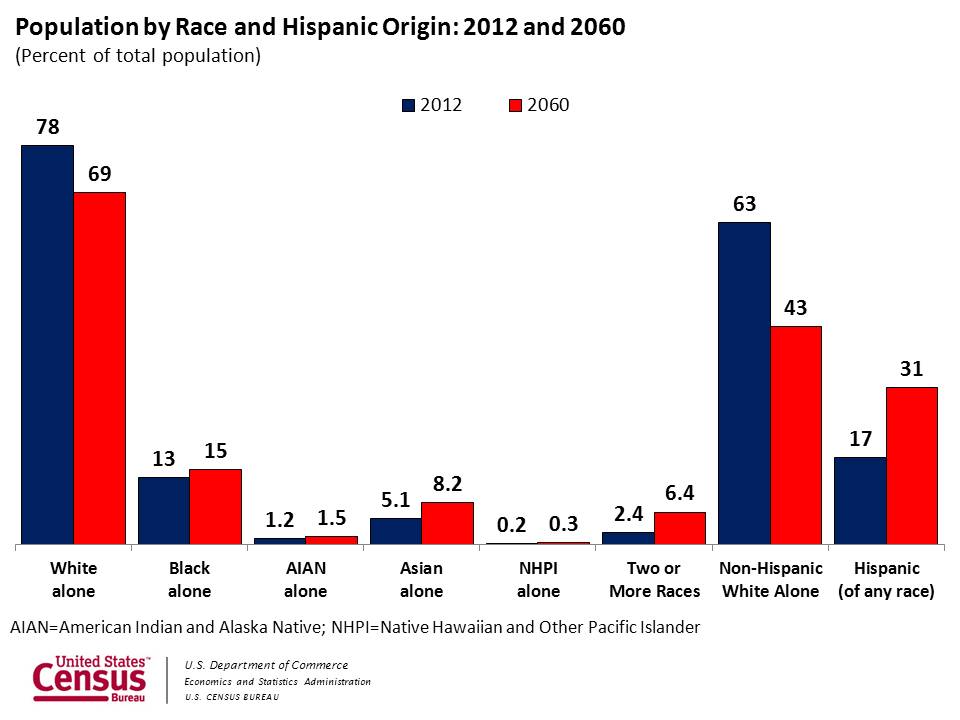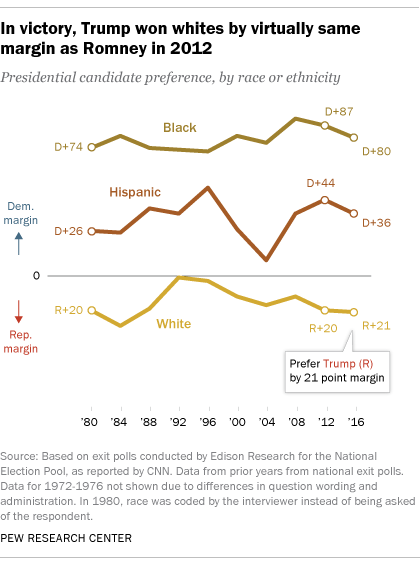Irvinecommuter said:
More numbers!
Not only are white evangelical voters incredibly loyal to the Republican Party, but increasingly so. In the 1996 and 2000 elections, white evangelicals broke for Republicans 65 percent and 68 percent, respectively. From 2004-2012, that figure was in the mid-to-high 70 percent range. In 2016, an overwhelming 80 percent of white evangelicals voted for the Republican Trump.
But at the same time that Republicans are having a very challenging time courting minority voters, it appears they are also struggling with the rest of white America ? the non-evangelical whites ? which is clearly much larger in size. In the 2016 election, non-evangelical whites comprised 63 percent of the total white vote and 45 percent of the overall vote? and it turns out they broke for the Democrat Clinton by a healthy 6 percent margin.
White evangelicals have done a tremendous and even historic job of propping up the Republican Party in the face of substantial demographic and ideological shifts in the nation. But implicit in all this data is that Republicans may have finally exhausted the segment that?s been most reliably carrying them in recent elections.
Given that the percent of the population that identifies as white evangelical is shrinking, while at the same time the portion that is showing up in the voting booth is increasing, there may not be many more white evangelicals for the Republican Party to lure to the voting booth. Of the estimated 41 million who are voter eligible, an estimated 35 million voted in 2016, for an astonishing 85 percent turnout rate.
https://techcrunch.com/2017/02/11/data-shows-a-downward-demographic-spiral-for-republicans/
This article highlights the basic fallacy of your argument.
The party went from receiving 65% of white evangelicals to 80% most recently. It illustrates how the party has changed in composition over time, but for some reason assumes the party won't continue to change in composition as America itself changes.
White evangelicals are only one source of votes that can be targeted. There are other groups that will rise to prominence whose values align with Republican politics in future years. Non-white evangelicals, conservative Hispanics, financially successful people of all stripes that don't want to give their hard-earned money to the government, as examples.
The basic flaw in your thinking is that there is a cap on the number of people that will join the party, while assuming the remaining (R) voters will dwindle in number. The party will adapt to whatever conditions exist at any given moment (sometimes through painful losses) and they will emerge stronger as a result.
Trump already showed the potential to do this by bringing in white working class voters that have mostly voted (D) their entire life, or just stopped voting altogether. He won the election because he brought new people into the party.
Lastly, I know you will cite California as an example of what could happen, but what it ignores is that starting in the 90's many California Republicans began moving out of state. It was a grand exodus to Nevada, Arizona, Montana, Idaho, and Texas. It made California a much more Democratic and extremist state, but what you fail to acknowledge is that many (not all) of these other states became much stronger Republican states as a result.
In a way, it is a zero sum game. As one state becomes more Democrat, another becomes more Republican. The key to winning is to bring in people that normally don't vote with a message that will energize voters enough to want to participate in the process.


